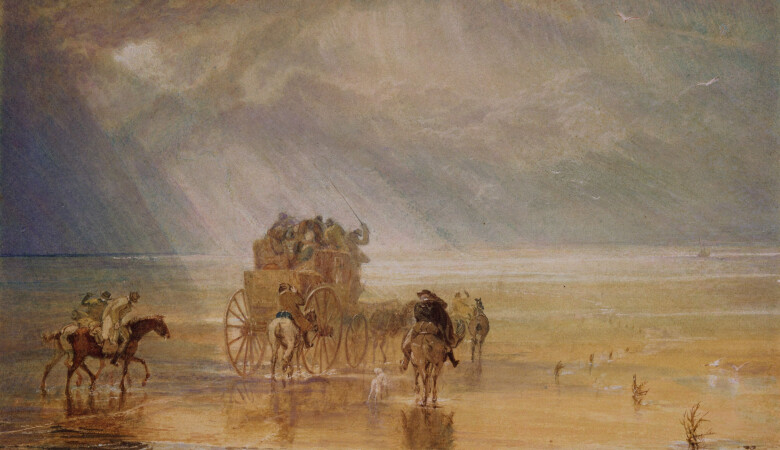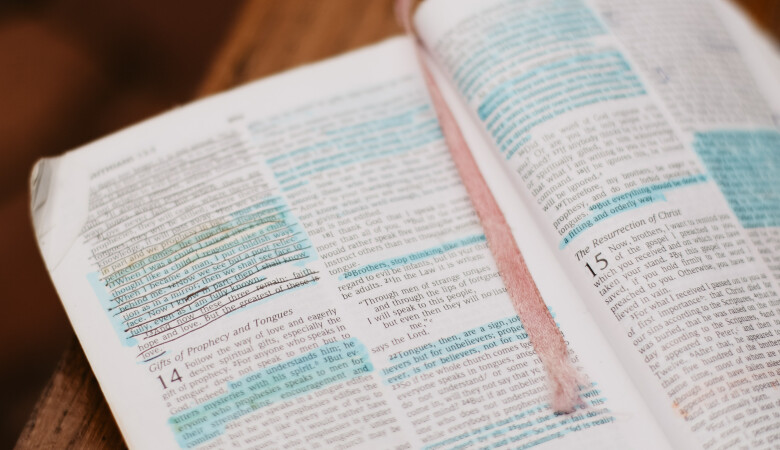The Resurrection of Christ: Power for Eternal Pleasures
November 12, 2000 | Andy Davis
Psalms 16:1-11
sermon transcript
Introduction
Years before Jesus was born, Psalm 16 testifies very plainly to the bodily, physical resurrection of Jesus Christ from the grave. But it does more than that, it points ahead to eternal pleasures at the right hand of God. I love Verse 11: “You have made known to me the path of life, you will fill me with joy in your presence, with eternal pleasures at your right hand.” We're going to look at it today. We've had an extraordinary week, haven't we, as we've looked at election returns. I usually don't address these kinds of current events from here, but it's been remarkable. The fact of the matter is it points toward a hungering and a thirsting that some people have for power. I don't know why else anyone would go through such a wrenching procedure, but it really is an illusion to earthly power, isn't there? It's really that whole ebb and flow of human history that has been after power, one empire rises up and then another one comes and takes its place, one after the other.
For example, the day that President Reagan was sworn into office, at that time, there was going to be a transfer of hostages in the hostage crisis in Iran. The hostages were being transferred that same day, and an aide to President Carter was keeping in touch with the process all morning long by phone. He took a break in the middle of one of those phone conversations to watch the actual swearing-in of the new president, President Reagan, then he returned to the phone call and continued to ask questions about the process, and at that moment, the person he was talking to said, "I'm sorry sir, you're no longer cleared for that information.” Just like that, and some people point to that as the power of the American political system, that there is such a neat clean transfer of power. There isn't anarchy, there are not people running in the streets and all that, but I think it also testifies to the fleetingness of temporal power. It's an illusion, it's here one day, and it's gone the next. Most of us aren't connected to that kind of power.
Man’s Pleasure is the Presence of God
I think more directly, we interact with this text on the issue of pleasure. We yearn for some kind of pleasures, and that's not wrong. We're wired for it, aren't we? If you look at a little girl eating an ice cream cone, she takes a lick and it melts in her mouth and it just goes down her throat and she takes another one. Little by little, the ice cream cone dwindles, and then it's gone. She feels happy, and she doesn't realize that she's just experienced the temporal nature of earthly pleasure. She'll have to eat another ice cream cone another time, that's the way it is. All pleasure on this earth is temporal. It's going to disappear, someday. I recently came back from vacation, so this is acute for me right now, gone for a little while, and on that vacation, I went with my son and daughter hiking up a beautiful mountain in the western part of the state. We were looking at the beautiful Smoky Mountains, and we climbed up and came to a clearing... You know what I'm talking about? One of those clearings where the valley just drops away and the foliage is there. We sat on this kind of rocky ledge and looked out over that, and I said, “Let's just be quiet for a moment, let's just be quiet and listen. We're so far from anything man-made, the only sounds we will hear are sounds that God's created.” We listened to the wind blowing deeply over that valley, you know what I'm trying to say, it's a deep sound and a powerful one, and we just soaked it in. Then after a little while, somebody said something, somebody else said something, we started conversing, we got up and we walked away. We went down in the car and it's been a descent ever since then. Here I am, from that mountaintop experience, but all of those mountaintop experiences are temporary. You can't hold on to them. I actually feel when I’m there that I wish I had another sense to take it in, my five senses aren't enough. Have you ever felt that before? C. S. Lewis felt that in a writing called “Till We Have Faces.” It’s an amazing work, and it is picking up on the myth of Cupid and Psyche. At one point in his writing, he talks about Psyche, and Psyche is talking to her friend Orual. “When I was happiest is that for which I longed the most. It was on happy days when we were up there on the hills, the three of us, with the wind and the sunshine, you remember? The color and the smell looking across the grey mountain in the distance, and because it was so beautiful, it set me to longing. Always longing, somewhere else there must be more of it. Everything seemed to be saying, ‘Psyche, come,’ but I couldn't, not yet come, and I didn't know where I was to come to. It almost hurt me. I felt like a bird in a cage when the other birds of its kind are flying home, the sweetest thing in all my life has been the longing to reach the mountain, to find the place where all the beauty came from.”
Now, where is that place? It's in the presence of God, He sent it and He puts you together to experience it, and not just for a moment, but for eternity. All of these temporary pleasures that you enjoy, that time takes from you one at a time, they all point to an eternal pleasure at the right hand of God. King David wrote 3000 years ago, Psalm 16, “Keep me safe. Oh God, for in you, I take refuge. I said to the Lord, you are my Lord, apart from you, I have no good thing. As for the saints who are in the land, they are the glorious ones. In whom is all my delight, the sorrows of those will increase, who run after other gods. I will not pour out their libations of blood or take their names on my lips, Lord, you have assigned me my portion and my cup, you have made my lot secure. The boundary lines have fallen for me in pleasant places, surely I have a delightful inheritance. I will praise the Lord who counsels me. Even at night, my heart instructs me. I have set the Lord always before me, because he is at my right hand, I will not be shaken. Therefore, my heart is glad and my tongue rejoices. My body also will rest secure because you will not abandon me to the grave, nor will you let your Holy One see decay. You have made known to me the path of life, you will fill me with joy in your presence with eternal pleasures at your right hand.”
As with all of these Messianic Psalms, we have to deal with the original context in which David wrote. David was a Jewish king, who lived 3000 years ago, thousand years before Jesus Christ. He was a poet, he wrote of his relationship with God. He was also a prophet and the things he wrote, which are recorded and kept for us in Scripture are prophecy, and with all of these Messianic prophecies, there's an element that relates just to David and his immediate circumstance, and then some elements that cannot or do not relate to David, but are lifted up above that circumstance and point ahead to Jesus Christ. That's especially true here in this Psalm, as Peter and Paul will point out as we get along in our preaching this morning, there's a portion of Psalm 16 that cannot relate to King David, and that points to eternal pleasure at God's right hand.
In Verse 1, David speaks of his security. Realize that David was in a dangerous position, he was a king, and uneasy lies the head that wears the crown, there's always somebody that wants to grab the crown from you. David had many enemies, we’ve talked about this before. Where was David going to find his security from his enemies? He says in verse 1, “Keep me safe, O God, for in you, I take refuge.” The picture here is of God as a strong fortress, a walled city, like Jerusalem itself up on a mountain, hard to attack, and anyone inside the walls of that fortress was safe. He comes to God and he says, “Keep me safe and protected, for I have taken refuge in you.” But he goes beyond that. David's security is God alone, but he goes beyond that and talks about his pleasures, his pleasures in life and the ultimate pleasure is God himself. In verse 2, he says, “I said to the Lord, you are my Lord. Apart from you, I have no good thing.” Is that not true? Apart from God, we have nothing good. “Every good and perfect gift is from above, coming down from the Father of the heavenly lights, who does not change like shifting shadows.” What good thing do you have in your life that you didn't receive from God? David knew it. He said, “You are the Lord. You are my God, and apart from you, I have nothing good.”
It's a terrifying phrase, isn't it? “Apart from you,” is really the picture of hell. We think about the lake of fire and the torment and all that, and it's terrifying enough, but the worst part of all is to be apart from God. Jesus says on Judgment Day, “Depart from me, you who are cursed into the eternal fire prepared for the devil and his angels, depart from me, be away from me.” The source of everything good David said, is God. “I don't want to be apart from you. Apart from you, I have nothing good. I want to be immersed in you, I want to be close to you.” What goodness comes to us apart from God. The psalmist in Psalm 73 said, “Whom have I in heaven but you? And earth has nothing I desire besides you.” King David knew it well, but more than just fellowship with God in prayer and in his walking with God came a stream of gifts to David from God's bounty. God's generous gifts just flowing to him one after the other. In verse 3, he says, “As for the saints who are in the land, they are the glorious ones, in whom is all my delight?” Is there anything quite as delightful on this earth as a good solid fellowship with other Christians? It's a pleasure, and it's going to be more and more of a pleasure, the more our surrounding culture becomes un- or even anti-Christian. We delight in fellowship with one another, there's a community of believers here and we share things at our heart, at our core. David says, “The godly ones in the land, I delight in them, I enjoy them, I want to be with them. They're a gift from you, O Lord, they are the glorious ones in whom is all my delight.” That's a gift from God, so also is freedom from the sorrow of sin. In verse 4, he says, “The sorrows of those will increase who run after other gods. I will not pour out their libations of blood or take their names on my lips.” David absolutely refuses fellowship with pagans who worship false Gods.He doesn't want any part of that, there is one and there is only one true God.
If you read on in the history of Israel, you saw all the syncretism, one king after another, would blend worship of Yahweh together with worship of Baal or Moloch other gods. David wanted no part of that because it brought sorrow. “The sorrows of those who run after other gods are going to increase, I don't want that sorrow. I want to follow You, O Lord, because in you is joy. I want to be close to you.” Then he speaks of a pleasant earthly situation, verses 5 and 6, “Lord, you have assigned me my portion and my cup, you have made my lot secure. The boundary lines have fallen for me in pleasant places, surely I have a delightful inheritance.” I like to be in the presence of contented people, don't you? Have you ever been with somebody who's constantly grumbling and irritable about their earthly lot; it's difficult to be with. Let's turn the whole thing around. Have you ever been in the presence of somebody who's genuinely, deeply content with what God's given them? I'd rather have contentedness than all the things I want. Wouldn't you? Because all the things you want, come and you still want, and you want, and more and more, I'd rather have the gift of contentedness, David had that gift. He said, “I’m satisfied God with what you've given me.” “Well, David, easy for you, look at you, you've got a palace of cedar and you've got a kingship and all that.” That doesn't guarantee happiness. He's contented because he sees these gifts as coming to him from God. It wasn't just that the boundary lines fell in pleasant places, he knows they came from God. The lot was cast, but it's every decision came from God. The image here is of Joshua leading the people into the Promised Land, the whole land stretched out before them, but who will get what? That could have been quite a squabble. We're seeing squabbles now, but it's nothing compared to what it would have been there. God said, “We're going to cast lots for it, this is the way it's going to be.” Each tribe got an allotted inheritance, and David said, “I’m satisfied with what you gave me God.” I think about the American west when all that territory stretched out, you think about the Oklahoma Sooners. In that last land grab some of the land is better than others, some of it's fertile, rich soil, with a river running through it. But just to be content with what God's given you. David was content, and that too was from God.
Then he mentioned constant counsel and guidance. God never left David alone, he never felt like he was on his own. He had advice, he had wisdom. Verse 7, “I praise the Lord who counsels me, even at night, my heart instructs me.” Nowadays, some people will pay thousands of dollars a year for advice and counsel, but David got it straight from God. What a blessed life, constant pleasure in God's friendship, fellowship with other believers, freedom from the sorrow of sin and paganism, a delightful earthly lot, straight from God's hand, and constant wisdom and counsel even at night. Now, what could rob that?
The Focus of Pleasure is Eternal, not Temporal
There is something isn't there? It's called the grave, and that's the whole problem with earthly pleasures, Death stands over all of them and mocks them. We've got to deal with this death problem, don't we? The second part of the Psalm, he's addressing that, “I set the Lord always before me because he is at my right hand, I will not be shaken, therefore my heart is glad and my tongue rejoices, my body also will rest secure because you will not abandon me to the grave, nor will you let your Holy One see decay. You've made known to me the path of life, you will fill me with joy in your presence, with eternal pleasures at your right hand.” What is he talking about there? He's talking about the threat of death and that because of the Lord, he's not afraid of the grave.
About 1000 years later or more, along came a burly fisherman, Peter who stood up on Pentecost and had a certain insight into this Psalm. Where in the world that a blue-collar worker like Peter get this insight into the Psalm? Could it be that Jesus showed it to him in that little 40-day seminar they had, where they went over the Psalms in detail? “Peter on Pentecost, when you get up there, preach on Psalm 16 and preach on my bodily resurrection because David didn't fulfill this. This wasn't fulfilled by David, it was waiting for me. I have now fulfilled it.” Peter stood up in Acts Chapter 2 and says, “Brothers, I can tell you confidently that the patriarch David died and was buried, and his tomb is here to this day, but he was a prophet, and he knew that God had promised him on oath that he would place one of his descendants on his throne, seeing what was ahead, he spoke of the resurrection of the Christ, that he was not abandoned to the grave, nor did his holy one see decay. God has raised this Jesus to life, and we are all witnesses of the fact.” What is he getting at here? He's focusing on one word, the word “decay.” It’s a very strong word here in Hebrew. David says, “My flesh will not be abandoned.” It's the same word used for the sacrificial offerings. Basar is the Hebrew word “flesh.” “My flesh will not be abandoned to the grave”, it's very physical. “You're not going to let me see decay,” he says. This word decay literally means “pit” or “ditch” and refers to the grave, but at its root, it means “destruction.” “Destruction,” the same word is used in Jeremiah 13:7. God commanded Jeremiah to take a linen belt from around his waist and go near a river and dig a hole and stick that cloth belt into the bottom of that murky, muddy hole and then fill it back up, and then come back sometime later and take it back out. What did it look like? It was ruined, it was destroyed, it was decayed, it was rotted, and the word rotted in the NIV is the same word that we get here, “You will not abandon me to the process of rot or destruction in the grave.”
This was a real issue. It's an issue for all of us. Remember when Jesus went to raise Lazarus from the dead, and he stands in front of that tomb and he says, "Roll away the stone.” Remember what Martha said, "But lord, he's been there four days and there's bound to be a terrible odor." I don't want to get too graphic, but this is what's waiting for us, folks. Don't spend too much time on your body, it's heading to the grave, just like David's. 1 Kings 2: 1-2 says, “When the time drew near for David to die, he gave the charge to Solomon, his son, ‘I am about to go the way of all the earth.’” What does that mean? I'm about to go the way of all the earth. What happens in all the earth? What is common to all peoples everywhere? Many things, but this is one of them—death.
Then after that, destruction in the grave, it's common to everyone; we’re about to go the way of all the earth. “Well then, David, what are you talking about here? You will not let your Holy One see decay.” This brings us back to Peter. David’s not talking about himself died and was buried and his body rotted in the tomb, but there was one to come, a Holy One to come who would not see decay. It was Jesus Christ, who triumphed over the grave, rose victorious on the third day. The apostle Paul sometime later made the same argument in Pisidian Antioch, Acts 13. This is his sermon, “We tell you the good news, what God promised our fathers, He has fulfilled for us, their children, by raising up Jesus. As it is written in the second Psalm, ‘You are my son, today, I've become your father.’” Then it states the fact that God raised him from the dead never to decay, “I will give you the holy and sure blessings promised to David.” So it is stated elsewhere, “You will not let your Holy One see decay. For when David had served God's purpose in his own generation, he fell asleep, he was buried with his fathers and his body decayed, but the one whom God raised from the dead did not see decay. Therefore, my brothers, I want you to know that through Jesus, the forgiveness of sins is preached to you.” Isn't that beautiful? Because of one word in a thousand-year-old prophecy, the word “decay,” we have a sure and certain hope of triumph over the grave.
David decayed, but Jesus didn't. The prophecy came true in Christ. We have a historical faith. Things happen in history, and it matters whether they happen or whether they don’t. The apostle Paul said, “If Jesus is still in the grave, then your faith is worthless, it's as worthless as that linen belt in the bottom of that murky hole, worthless, if Jesus didn't rise from the dead, your faith is worthless.” But He did rise from the dead, and not only that, it was predicted a thousand years beforehand, so here we have the two greatest historical evidences of the truth of Christianity, fulfilled prophecy, and the empty tomb of Jesus Christ, and they come together in this one verse. We have a solid and secure hope for triumph over the grave, and it provides a basis, a foundation, for eternal pleasure at God's right hand. Modern scholarship tells you, there was no resurrection in the Old Testament, they never predicted it, the sheol, the grave. That is so wrong, so faulty. Isaiah 53 speaks of the resurrection of Jesus Christ, “It was the Lord's will to crush him and to cause him to suffer.”
And though the Lord makes his life a guilt offering, He will see his offspring and prolong his days, and the will of the Lord will prosper in his hands. After the suffering of his soul, He will see the light of life and be satisfied. How much more plainly can you see it? “After the suffering of his soul, He will see the light of life and be satisfied. Because He poured out his life unto death and was numbered with the transgressors, for He bore the sin of many and made intercession for the transgressors, the suffering servant died and rose again, and He did it all for us. Therefore the forgiveness of sins is preached to you.” [Isaiah] He was our substitute, and just as He took on our corruption and our sin and death, so also He gives us eternal life and his resurrection victory. There are other prophecies in the Old Testament, you can look them up. Job 19 says, “I know that my redeemer lives, and that in the end, he will stand upon the earth, and after my skin has been destroyed, yet in my flesh, I will see God. I myself will see him with my own eyes. I am not another, how my heart yearns within me.” Don't listen to these Old Testament experts. The Old Testament preaches a resurrection. And not just for Jesus, but for you as well.
What was Christ raised to? It says in Psalm 16: 9-11, “Therefore, my heart is glad and my tongue rejoices, my body also will rest secure, because you will not abandon me to the grave nor will you let your Holy One see decay, you have made known to me the path of life, you will fill me with joy in your presence, with eternal pleasures at your right hand.” Let's focus on Jesus Christ, because this is speaking of Christ. Christ was not abandoned in the grave, nor did his body see decay, and then He was raised from the dead into eternal pleasures at his own heavenly father's right hand. You can't measure the amount of joy the Son has in the Father's presence. He yearned for it, He was hungry and thirsty for it. He was willing to take on a human body, and He was willing to experience, as a kind of a, separation from God on the cross under the wrath of God for us, but He yearned to be back in face-to-face fellowship with his heavenly father. In John 17, He says, “And now Father, glorify me in your presence with the glory I had with you before the world began.” He knows that pleasure. He said the same thing later in prayer, when He said, “I will remain in the world, no longer, but they, the disciples are still in the world, and I am coming to you.” Can you sense the, “I can't wait? I'm coming to you Father. I can't wait to be with you. I can't wait to see you, to be in your very presence.” Again in John 17:13, he says, “I am coming to you now.” Then as He's hanging on the cross, [Luke 23:46], “Jesus called out with a loud voice, Father, into your hands, I commit my spirit,” and with that breathes his last, right into the presence of God, eternal pleasure at the right hand of God. But you know something, He already had that from eternity past. Why did He go through all that? What was the purpose of all that suffering, just to get back where He was before it was, because none of us would have experienced that eternal pleasure at his right hand, so the Psalm doesn't refer to David initially, but it comes back to refer to him in the end, doesn't it? Because Jesus suffered in David's place, David will have eternal pleasure at God's right hand, because Jesus suffered in your place, if you're a believer in Christ, you also will experience eternal pleasure at God's right hand. That's the whole point. That's what He came for. He already had that before He came to get it for you. John 14:19, “Because I live, you also will live. Because I ascend, you also will ascend because I have a resurrection body, you also will get one because I am seated at the right hand of God, you also will be seated there too, because I enjoy eternal pleasure at my father's right hand, you'll enjoy it too. Forever and ever, that's why I came, to give it to you.” 1 Corinthians 15:20, “but Christ has indeed been raised from the dead, the first fruits of those who have fallen asleep.” What does that mean? The First fruits? The first one. But what does it imply? Second fruits and third fruits, and fourth and fifth, and more than anyone can count, a multitude greater than anyone could count, standing in the presence of God redeemed through the blood of the Lamb.
But when will it happen? Are you hungry and thirsty for it today? Well, each in his own turn, it says 1 Corinthians 15:23, Christ, the first fruits, then when he comes, those who belong to him, you get your resurrection body when He comes, you have to wait until then. Waiting is the hardest part, isn't it? But there is a path for you. There's a journey to be travelled. Jesus said to his disciples, the night before He died and earned all this, “Do not let your hearts be troubled, trust in God. Trust also me. In my father's house are many rooms. If it were not so, I would have told you for I'm going there to prepare a place for you. And if I go and prepare a place for you, I will come back and take you to be with me, so that you also may be where I am.” You know the way to the place where I am going [verse 11], “You have made known to me the path of life.” Isn't that the same teaching? “You have made known to me the path of life.” [Psalm 16:11]. “You know the way to the place where I'm going, there's a journey. There's a path of life and you know it,” said Jesus to his disciples. Thomas said, “Lord, we don't know where you're going, so how can we know the way?” Jesus say, “I am the way, and the truth and the life. No one gets the eternal pleasures of God at his right hand, except through me. That's the way you get it through me, but you will get it through me. I am the way. I am the way, the living way, into the very presence of God.”
The Pleasures of Eternity
So it comes around to our eternal pleasure. Pleasure, that's kind of a dirty word, isn't it? We don't want pleasures. “Don't you mean joy? Isn't that what we mean, joy?” One of those cleaner, crisper, Christian words. Pleasure is kind of dirty. It's a little sullied, isn't it? But it says, pleasure, eternal pleasure, not just a little pleasure, but a lot of pleasure. Pleasure forever. What are these pleasures? What do we get? C. S. Lewis in his sermon, “Weight of Glory”, lists five things you get. Number one, we shall be with Christ face-to-face. Number two, we shall be like Christ, transformed to be like him. Number three, we shall be, in some sense, glorious. Glorious. Remember how I told you that I wanted another sense to take it into myself when I'm looking at that valley, all that beauty, it's not enough just to see, it's not enough just to taste or to hear, I want more. We will be glorious, not just see glory, it will come into us, it will transform us like Moses' face, shining, radiantly. We shall be glorious. Number four, we shall in some sense, I'm quoting Lewis now, “be fed, feasted or entertained with heavenly pleasures.” There's all this feast language, you know, there's feast, the wedding feast, the banquet of the Lamb, there's this image of feasting in the presence of God, and then number five, we will have some sort of official position in the universe reigning with Christ at his right hand, this kind of thing.
These are the five things. Now, what did you do to merit all that? Nothing, it's given to you as a gift of grace, just by simply believing and trusting in Christ, eternal pleasure at his right hand, Christ himself face-to-face, transformed to be like Christ, including his resurrection body, glorious, feasting in his presence and somehow in some manner reigning with him in an official position. You should say, I shouldn't want that, that's so mercenary. I shouldn't want something for myself, try to deny it. When you're cold, what do you do? Rectify the situation if you can, put on a sweater, etcetera, when you're hungry, you eat, you can't deny your yearning for pleasure. What I'm saying is channel it properly toward God and realize that every earthly pleasure you have is temporal, it will go away. Anything you can touch, including loved ones, people you love, your husband, your wife, your kids, the relationship as such as it is now is temporary, don't cling too tightly, but all of these temporary pleasures, ice cream flowing down the throat, the sound of the wind and the sight of the foliage. All of these temporary pleasures point ahead to an eternal pleasure at God's right hand. You're wired for it, and God has not designed you to be frustrated, but rather satisfied in Christ. Find your joy in him. Pascal writes about this. There was once in man a true happiness of which now remains to him only the mark and empty trace, which he in vain tries to fill from all his surroundings, seeking from things absent the help he does not obtain in things present. But these are all inadequate because the infinite abyss can only be filled with an infinite and immutable object, that is to say, God himself. You're designed for pleasure, but it's not here, and while you're physical and you have five senses and they get filled up with good gifts from God, that's fine, but you must not live for them.
Application
How do we apply the things that we've learned, first and foremost, glory and fulfilled prophecy, we've seen one after another, do you see the certainty of your faith? A thousand years before Jesus, the bodily resurrection of Jesus Christ, clearly written about in this. Rejoice that Jesus' resurrection victory was not for his own glory. He already had that, it was for you, that you may enjoy eternal pleasures at his right hand. Because I live, you also will live. Thirdly, about these earthly temporal pleasures, beware of them, they are so tempting, they pull your eyes off of that which is eternal onto those things that are temporal. Jesus said, “Do not store up treasure on earth, where moth and rust destroy, and where thieves break in and steal, but store up for yourselves treasures in heaven where moth and rust do not destroy. And where thieves do not break in and steal, for where your treasure is, there your heart will be also.”
Heavenly Father, you have given us many blessings, they fill our senses every day, blessings of beauty, delicious blessings, soothing ones, O Lord, and every one of them has come from you as a gift of your grace. O, heavenly Father, may we not live for them, may we look beyond them, O Lord, to the source, eternal pleasure at your right hand should be our goal and our yearning, O heavenly Father, thank you that you have conquered the enemy which would have taken all of this from us, death, the grave. O Jesus, thank you for your resurrection victory. Father, I fear that there are some hearing me today who will not come to faith in Christ, who do not believe in you for salvation. O Lord, their eyes are filled with this world, their heart too. God, I pray that you would save them. That they would come off the sand onto solid rock, into a refuge, a strong tower, which will never be shaken, the promise of God, that whoever repents and trusts in Christ will have eternal life. And for all of us who already know you, O God, I pray that we would not set our hearts on things below, but rather on things above and live for them. We pray in Jesus' name, amen.





















